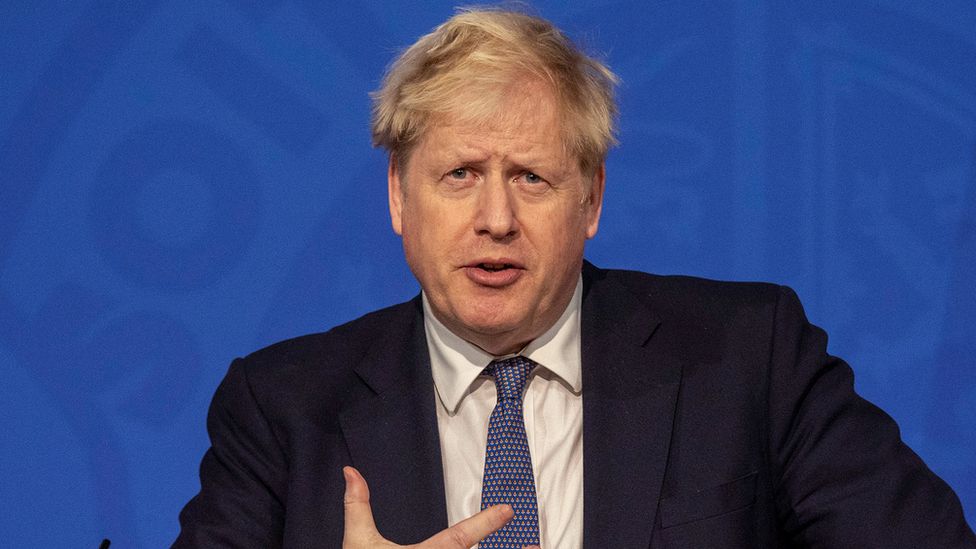ARTICLE AD BOX
 Image source, Getty Images
Image source, Getty Images
Boris Johnson has faced weeks of heavy criticism at the inquiry by some of those he worked with most closely
By Chris Mason
Political editor, BBC News
Boris Johnson is expected to apologise to the Covid Inquiry next week and acknowledge the government did not get everything right during the pandemic.
But the former PM will argue robustly that his government got many of the big calls right.
He will talk with pride about the vaccines programme and argue the UK emerged the final lockdown earlier than other comparable economies.
His evidence will follow weeks of heavy criticism of him at the inquiry.
Those around Mr Johnson are letting it be known the broad tenor and scope of the arguments he is expected to make, before what could be up to ten hours of questioning from lawyers.
Boris Johnson's capabilities as a prime minister in a pandemic have been criticised by some of those who worked most closely with him when Covid struck.
His former director of communications, Lee Cain, said the pandemic was the "wrong crisis" for Mr Johnson's "skill set", describing dither and delay.
The former chief scientific adviser, Sir Patrick Vallance, said Mr Johnson was "bamboozled" by scientific data.
And his former chief adviser, Dominic Cummings, has long described the former prime minister as "the trolley" due to his tendency to veer around and constantly change his mind.
So Mr Johnson has some reputation management to do.
Those who have helped prepare him for his appearance before the inquiry - which will happen next Wednesday and Thursday - say he will take on those who have accused him of constantly changing his mind by emphasising the volume of briefings he was receiving, how quickly advice would change and the magnitude of the decisions he had to make.
He will also defend his use of colourful language and phrases, and the adoption of provocative positions in private - saying it helped him get the best out of his advisers and it is not wise for a prime minister to sit in silence when being briefed by experts.
One source said: "Ministers can argue for their briefs, as they should. So a health secretary will argue for public health. A chancellor will argue for the economy.
"But there is only one person in the British system of government that has to arbitrate between the competing arguments and ultimately come to a decision, having made a call on the trade-offs."
The source added: "There is only one guy in this country who can tell you what it is like to be prime minister in a pandemic. And one day there will be another one."
Mr Johnson's written statement, around 200 pages long, has already been submitted to the inquiry.
It is thought the statement barely mentions Mr Cummings.
The former health secretary, Matt Hancock, has revealed in his written statement to the inquiry that "the then prime minister has apologised to me for appointing his chief adviser and for the damage he did to the response to Covid-19".
Mr Hancock regarded Mr Cummings as a "malign actor" who created a toxic culture in Downing Street.
Mr Johnson is expected to say he does not agree with that and that there were always likely to be elements of tension within government, particularly at a time of heightened stress.
He is, though, expected to say that he doesn't condone unreasonable behaviour or language.
Boris Johnson has been advised in his preparations by Brian Altman KC.
At 10am on Wednesday, his interrogation by Hugo Keith KC will begin. A country will be watching and waiting: for scrutiny, accountability, and answers.

 1 year ago
31
1 year ago
31








 English (US) ·
English (US) ·